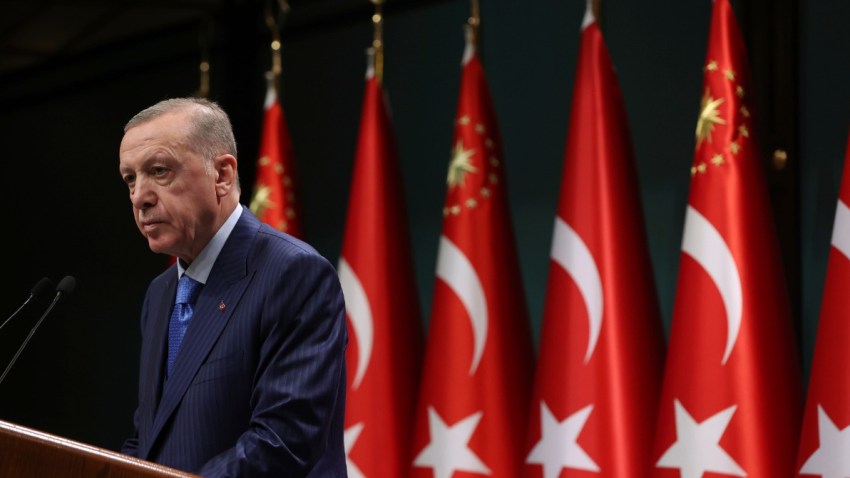Turkey’s presidential and parliamentary elections, scheduled for May 14, were expected to be fateful events for President Recep Tayyip Erdogan and his ruling AKP party. But despite weeks of uncertainty over whether the elections would take place as scheduled in the aftermath of the earthquakes that devastated southern Turkey on Feb. 6, as well as speculation over whether the disaster would dent Erdogan’s chances in the polls, recent developments appear to be going in his favor.
Erdogan indicated last Wednesday that the ballot will go ahead as planned, in part because the Turkish constitution does not allow elections to be postponed unless Turkey is at war with another country. But it is also because it is in both Erdogan’s and the AKP’s interest for the elections to take place sooner rather than later, in order to capitalize on recent political and economic trends.
The economic growth that Erdogan achieved over his two decades in power—first as prime minister, and then as president since 2014—has been generally reversed over the past four years, with the rate of poverty rising, the currency depreciating and inflation increasing. The earthquakes are expected to add to these challenges, with the World Bank estimating the cost of the damage at $32.4 billion, with the cost of reconstruction projected to be twice as much.

